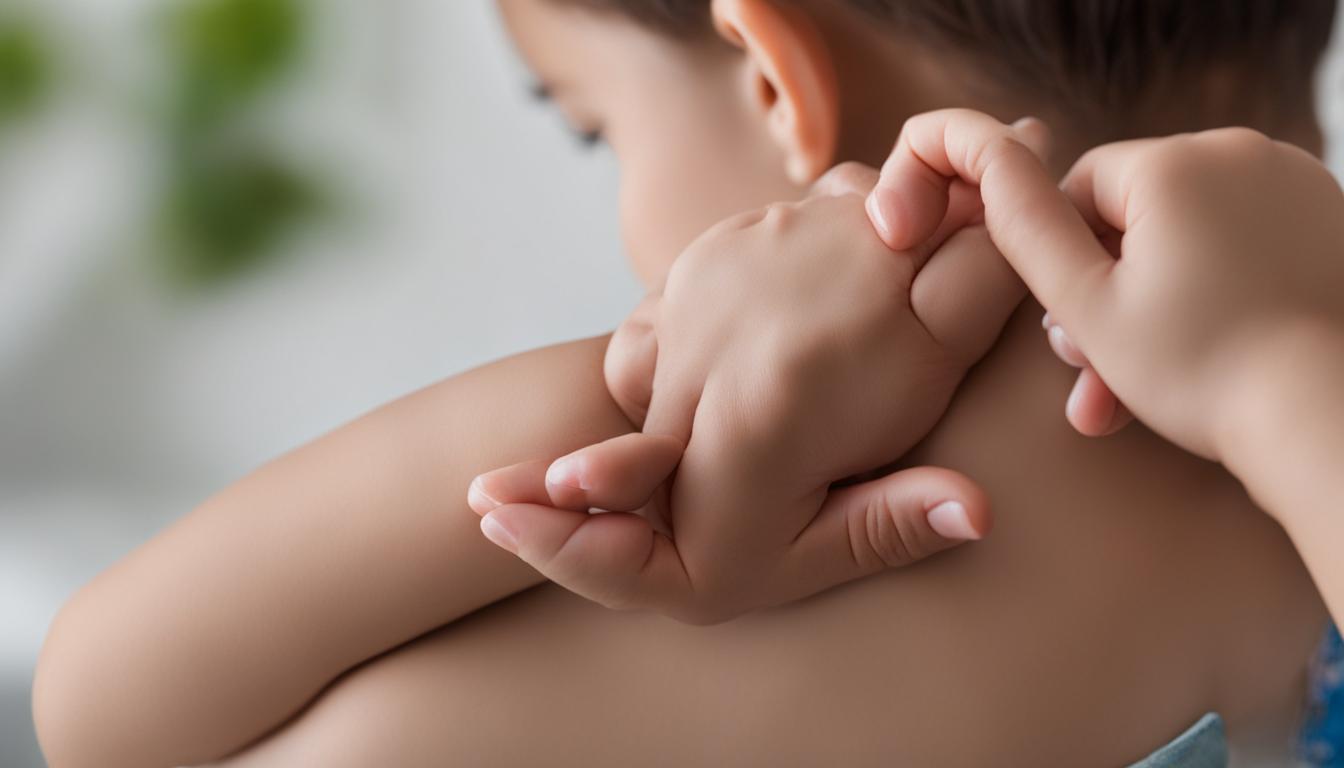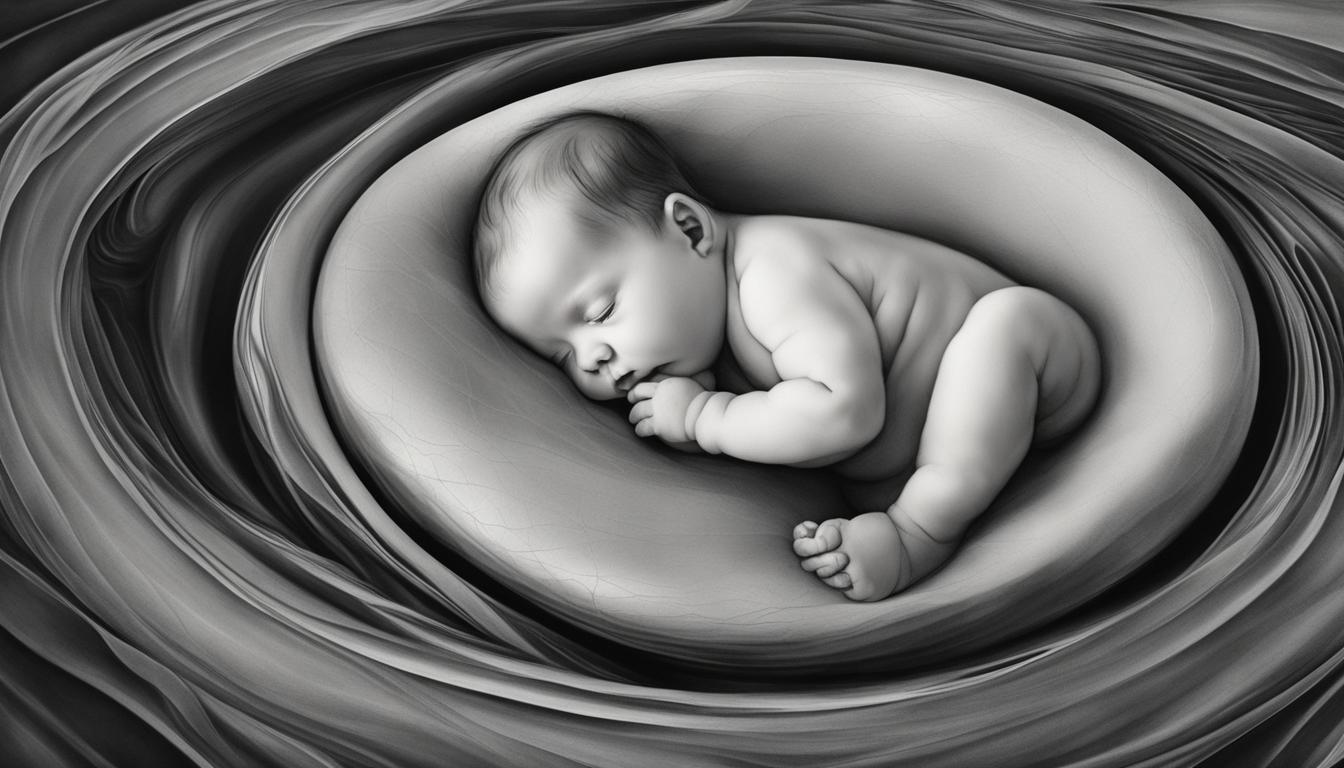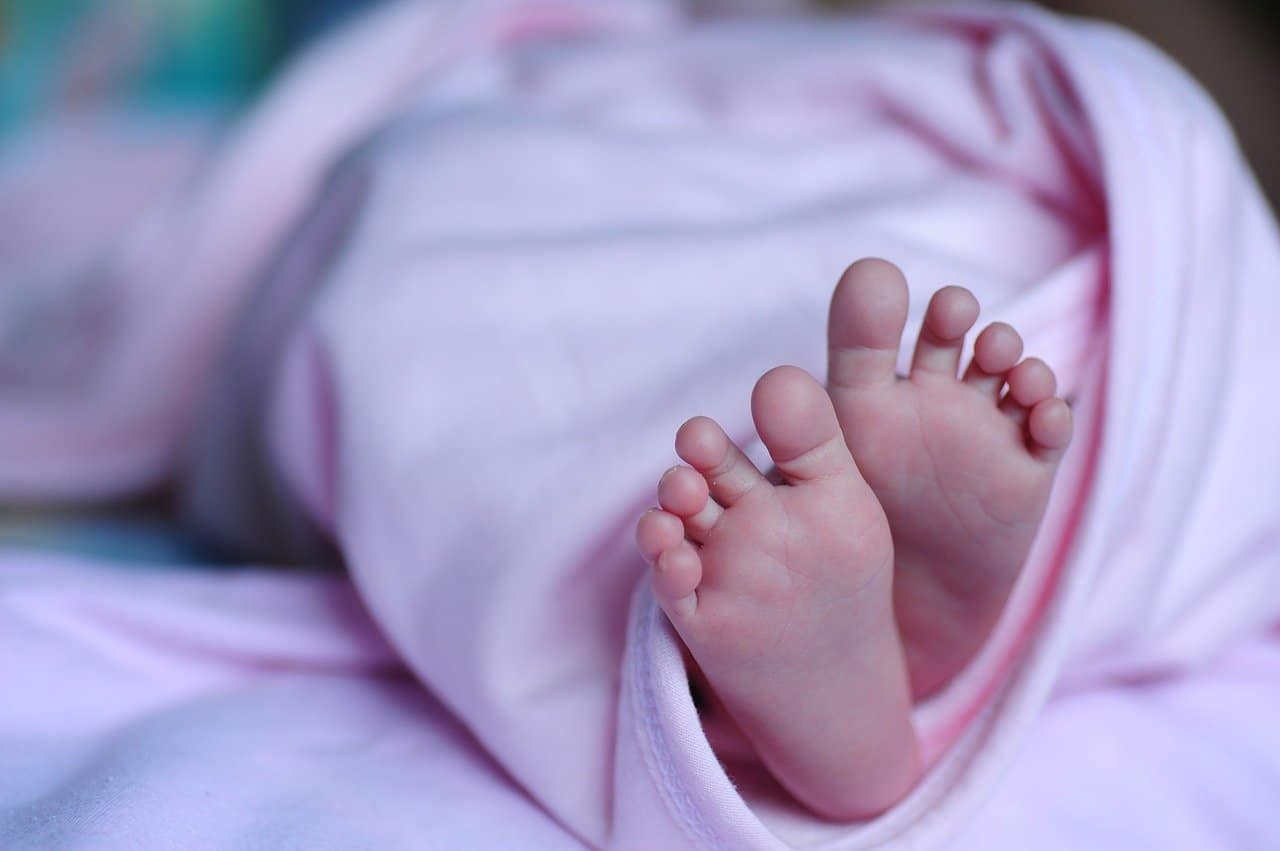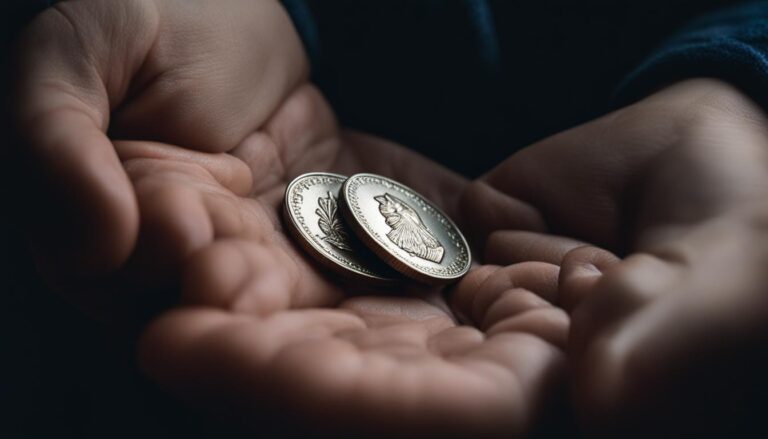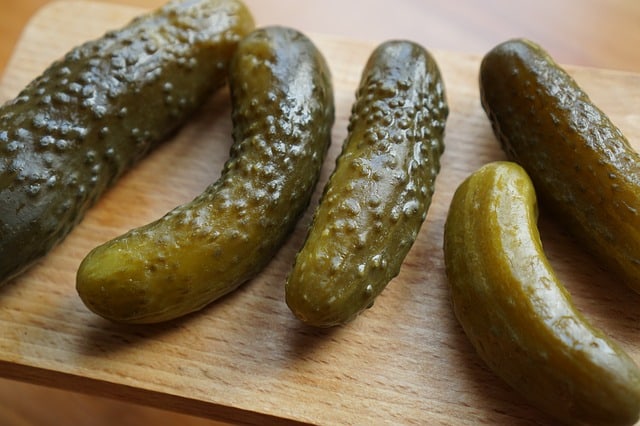Safe Treatments for Child Itchy Skin – Get Relief
As a parent, it can be distressing to see your child experience the discomfort of itchy skin. Children with eczema, also known as atopic dermatitis, often struggle with dry, irritated skin that leads to itching and inflammation. While there is no known cure for eczema, there are safe and effective treatments available to alleviate symptoms and provide relief for your child.
To effectively manage your child’s itchy skin, it is essential to establish a daily skincare routine. Start by bathing your child with lukewarm water and using mild, fragrance-free cleansers. Avoid hot water and harsh soaps that can strip the skin of its natural moisture. After bathing, gently pat the skin dry and immediately apply a moisturizer to lock in hydration.
Choosing the right moisturizer is crucial. Look for gentle, fragrance-free options that are specially formulated for children’s sensitive skin. Creamier moisturizers like petroleum jelly or fragrance-free moisturizing creams are more effective in restoring and maintaining the skin’s moisture balance than thinner lotions.
In addition to a skincare routine, there are other treatments that can help relieve your child’s itchy skin. Wet wrap treatments, where wet bandages are applied over moisturized skin, can provide soothing relief. Antihistamine medicines can also help reduce itchiness by blocking the allergic response in the body.
If your child’s skin is inflamed or irritated, your healthcare provider may recommend topical steroid medicines. These medications are applied directly to the affected areas to reduce inflammation and help the skin heal. Non-steroid eczema medicines, such as calcineurin inhibitors, are alternative options that do not contain steroids.
It is important to be vigilant for signs of infection, as itchy skin can sometimes lead to skin infections. If you notice any signs of infection, such as increased redness, warmth, swelling, or discharge, it is imperative to seek medical attention promptly.
Key Takeaways:
- Establish a daily skincare routine for your child, including gentle bathing and moisturizing.
- Choose moisturizers that are specifically formulated for children’s sensitive skin.
- Consider wet wrap treatments and antihistamine medicines to alleviate itchiness.
- Topical steroid and non-steroid eczema medicines can help heal irritated skin.
- Monitor for signs of infection and consult a healthcare provider if necessary.
Natural Remedies for Itchy Skin in Children
When it comes to managing itchy skin in children, natural remedies can provide soothing relief without causing irritation. These non-irritating treatments for child skin itching work alongside medical treatments and regular skincare routines to alleviate discomfort and promote healthier skin.
Cool Baths with Oatmeal
One effective natural remedy is using cool baths with oatmeal. Oatmeal has anti-inflammatory properties that can help calm irritated skin and reduce itching. Simply add colloidal oatmeal (finely ground oatmeal) to lukewarm bath water and allow your child to soak for around 15 minutes. The oatmeal will help soothe their skin and provide relief from itching.
Gentle Soaps and Laundry Products
Choosing gentle soaps and laundry products is essential for children with itchy skin. Harsh chemicals and fragrances can further irritate their skin, leading to more itching and discomfort. Opt for unscented and hypoallergenic soaps, detergents, and fabric softeners to minimize irritation and keep your child’s skin calm and itch-free.
Promptly Changing Wet Diapers
For younger children in diapers, promptly changing wet diapers is crucial. Moisture can contribute to skin irritation and itching. By keeping your child clean and dry, you can prevent the onset of itching and minimize discomfort. Use gentle wipes or clean water with mild soap to cleanse their skin during diaper changes.
Natural Moisturizers like Coconut Oil
Using natural moisturizers such as coconut oil can effectively hydrate and nourish your child’s skin, reducing dryness and itchiness. Coconut oil contains antibacterial and antifungal properties that help maintain a healthy skin barrier. Gently massage a small amount of coconut oil onto your child’s skin after bathing to lock in moisture and relieve itching.
Preventing Scratching with Soft Cotton Gloves
To prevent scratching injuries and further skin damage, consider having your child wear soft cotton gloves to bed. This can serve as a physical barrier that discourages scratching while they sleep. By preventing excessive scratching, you can promote healing and reduce the risk of infection.
Avoiding Triggers
Avoiding triggers that can worsen itching is essential for managing your child’s itchy skin. Irritants such as harsh chemicals, certain fabrics, and allergens like pollen or pet dander can aggravate the skin and lead to uncomfortable itching. Additionally, insect repellents can also cause skin irritation. By identifying and avoiding these triggers, you can minimize itching episodes and provide relief for your child’s sensitive skin.
By incorporating these natural remedies into your child’s skincare routine, you can provide relief for their itchy skin and promote overall skin health. Remember to consult with a healthcare professional or dermatologist for personalized advice and guidance on managing your child’s specific skin condition.
| Treatment | Key Benefits |
|---|---|
| Cool Baths with Oatmeal | Soothes irritated skin and reduces itching |
| Gentle Soaps and Laundry Products | Minimizes skin irritation and promotes healthier skin |
| Promptly Changing Wet Diapers | Prevents moisture-related skin irritation and itching |
| Natural Moisturizers like Coconut Oil | Hydrates and nourishes the skin, reducing dryness and itchiness |
| Preventing Scratching with Soft Cotton Gloves | Protects the skin from scratching injuries and further damage |
| Avoiding Triggers | Minimizes exposure to irritants and allergens that can worsen itching |
Effective Treatments for Child Itchiness
When it comes to treating child itchiness, there are several effective options available. It is important to choose gentle and child-friendly treatments that provide relief without causing irritation. Here are some effective treatments that can help alleviate itchiness in children:
- Topical Over-the-Counter (OTC) Creams and Ointments: Hydrocortisone-containing creams and ointments are available without a prescription and can provide relief for inflammatory or allergic itches caused by bug bites or poison ivy. It’s crucial to follow the recommended dosages and consult a healthcare provider if unsure.
- Non-Steroidal Anti-Itch Products: These products contain antihistamine-like ingredients, such as diphenhydramine, which can help block the chemical histamine involved in allergic reactions and itching. They come in various forms and brands, providing options for different preferences and needs.
- Wet Dressings or Compresses: Applying wet dressings or compresses to the itchy areas can help soothe the skin and decrease itchiness. This can be done using a clean cloth soaked in cool water and applied to the affected areas. Oatmeal baths can also have a similar soothing effect on the skin.
When choosing skincare products for children with itchy skin, it is important to opt for gentle and non-irritating options. Look for products specifically designed for children and formulated with mild ingredients. Additionally, dressing your child in loose, light, and cotton clothing can help prevent further irritation and discomfort. Remember, it’s always best to consult with a healthcare provider or dermatologist for personalized recommendations and guidance.
| Treatment | Benefits |
|---|---|
| Topical Over-the-Counter (OTC) Creams and Ointments | Provides relief for bug bites and allergic reactions |
| Non-Steroidal Anti-Itch Products | Blocks histamine and reduces itching |
| Wet Dressings or Compresses | Soothes the skin and decreases itchiness |
Relieving Itchy Skin in Kids
To relieve itchy skin in kids, it is important to keep their skin moisturized and hydrated. Regular use of moisturizers immediately after bathing helps lock in moisture and alleviate dryness. It is recommended to use creamier moisturizers like petroleum jelly or fragrance-free moisturizing creams, as lotions are thinner and less effective. Dressing children in soft fabrics like 100% cotton and using mild and fragrance-free laundry detergents can also prevent irritation. Avoiding known triggers such as dust mites, fragrances, heat, sweat, and certain fabrics can help manage dry and itchy skin. Additionally, keeping the child’s nails short and using wet wraps or antihistamine medicines as directed can reduce scratching and provide relief.
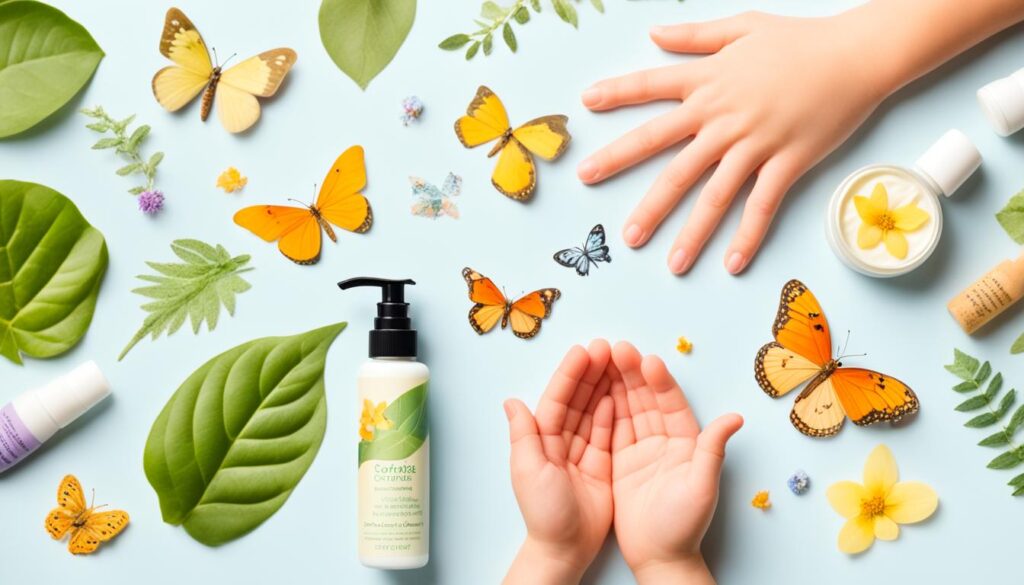
Relieving itchy skin in kids requires a comprehensive approach, combining proper skincare, trigger avoidance, and suitable treatments. By implementing these strategies, parents can effectively manage and alleviate their child’s dry and itchy skin, promoting comfort and well-being.
Dermatologist Recommended Child Itchy Skin Remedies
Dermatologists highly recommend specific treatments for child itchy skin to effectively manage and alleviate discomfort. Alongside natural remedies and over-the-counter products, they may prescribe topical prescription medications tailored to the severity and specific needs of the child’s skin condition.
One commonly prescribed treatment is the use of topical steroids, which are effective in healing irritated eczema rashes. These medications work to reduce inflammation, redness, and itching, providing much-needed relief for children. Additionally, non-steroid eczema medicines with different active ingredients can be recommended to address specific symptoms and promote skin healing.
For children with moderate to severe eczema that is not well controlled with other treatments, dermatologists may suggest biologic therapies. Biologics, such as Dupilumab, target the immune system to effectively manage and alleviate symptoms. These innovative treatment options have shown promising results in reducing itchiness and improving overall skin health in children.
When following a treatment plan prescribed by a dermatologist, it is crucial to adhere to the recommended dosages and application instructions. Consistency and compliance with the prescribed treatments are key factors in achieving optimal results for child itchy skin. Dermatologists provide expert guidance and supervision throughout the treatment process to ensure the safety and well-being of the child.
By seeking the advice and expertise of a dermatologist, parents can gain access to safe and effective options for treating child itchiness. Dermatologist-recommended remedies prioritize long-term skin health and provide comprehensive solutions for managing and alleviating the discomfort associated with child itchy skin.
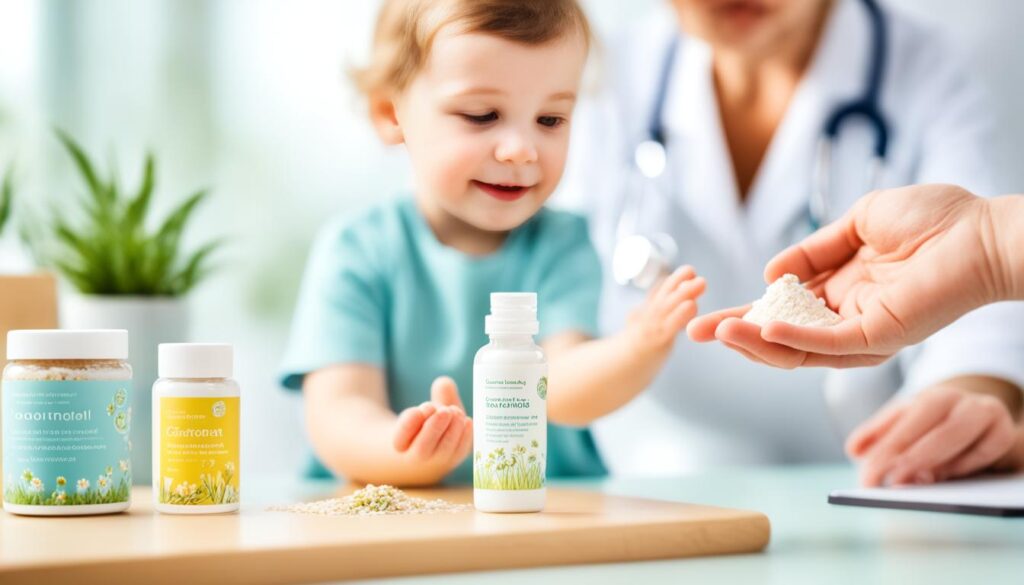
| Treatment | Description |
|---|---|
| Topical Steroids | These medications reduce inflammation and itching, promoting healing of irritated eczema rashes. |
| Non-Steroid Eczema Medicines | Prescribed to address specific symptoms, these medications help heal the skin without the use of steroids. |
| Biologic Therapies | Target the immune system to effectively manage moderate to severe eczema that is unresponsive to other treatments. |
Managing and Preventing Child Itchy Skin
When it comes to managing and preventing child itchy skin, a daily skincare routine is crucial. Begin by bathing your child in lukewarm water with gentle cleansers to remove irritants and allergens from their skin. After bathing, make sure to moisturize their skin using a dermatologist-recommended moisturizer to lock in moisture and prevent dryness.
Choosing clothing made from soft fabrics, like 100% cotton, can help minimize irritation and discomfort. It’s important to avoid triggers that may aggravate your child’s itchy skin, such as fragrance, smoke, dust, animal dander, and certain fabrics. By minimizing exposure to these triggers, you can reduce the likelihood of flare-ups and keep your child’s skin calm and comfortable.
If you’re uncertain about the best way to manage your child’s itchy skin, it’s always a good idea to consult a dermatologist or healthcare provider. They can provide expert advice and recommend safe and effective options for treating your child’s itchiness, including dermatologist-recommended remedies. Remember, early intervention and proper management can make a significant difference in your child’s comfort and well-being.
FAQ
Can you recommend any natural remedies for itchy skin in children?
Yes, there are several natural remedies that can help relieve itchy skin in children. These remedies include cool baths with oatmeal, using gentle soaps and laundry products, changing wet diapers promptly, and trying natural moisturizers such as coconut oil. Avoiding triggers such as irritants and allergens, as well as insect repellents, can also help prevent itching. Soft cotton gloves can be worn to bed to protect the skin from scratching. These natural remedies can be used alongside medical treatments and regular skincare routine to provide relief for itchy skin.
What are some effective treatments for child itchiness?
There are several effective treatments available for child itchiness. Topical over-the-counter (OTC) creams and ointments containing hydrocortisone can provide relief for inflammatory or allergic itches caused by bug bites or poison ivy. Wet dressings or compresses, as well as oatmeal baths, can soothe the skin and decrease itchiness. Topical prescription medications, including topical steroids and non-steroid eczema medicines, may be recommended by dermatologists. Non-steroidal anti-itch products with antihistamine-like ingredients can also help block the chemical histamine involved in allergic reactions and itching. It is important to choose gentle and non-irritating products for the child’s skincare routine and to dress them in loose, light, and cotton clothing.
How can I relieve itchy skin in kids?
To relieve itchy skin in kids, it is important to keep their skin moisturized and hydrated. Regular use of moisturizers immediately after bathing helps lock in moisture and alleviate dryness. Dressing children in soft fabrics like 100% cotton and using mild and fragrance-free laundry detergents can also prevent irritation. Avoiding known triggers such as dust mites, fragrances, heat, sweat, and certain fabrics can help manage dry and itchy skin. Additionally, keeping the child’s nails short and using wet wraps or antihistamine medicines as directed can reduce scratching and provide relief.
Are there any dermatologist-recommended remedies for child itchy skin?
Yes, dermatologists recommend various treatments for child itchy skin. In addition to natural remedies and over-the-counter products, dermatologists may prescribe topical prescription medications, including topical steroids and non-steroid eczema medicines. Biologic therapies, such as Dupilumab, are also an option for moderate to severe eczema that is not well controlled with other treatments. It is important to follow the dermatologist’s advice and treatment plan to effectively manage and alleviate child itchy skin.
How can I manage and prevent child itchy skin?
Managing and preventing child itchy skin involves maintaining a daily skincare routine and avoiding triggers. Regularly bathing the child in lukewarm water with gentle cleansers, moisturizing after bathing, and dressing them in soft fabrics are essential. Minimizing exposure to irritants and allergens such as fragrance, smoke, dust, and animal dander is important. Avoiding known triggers like heat, sweat, insect bites, and certain fabrics can also prevent flare-ups. Consulting a dermatologist or healthcare provider can provide further guidance on managing and preventing child itchy skin.

